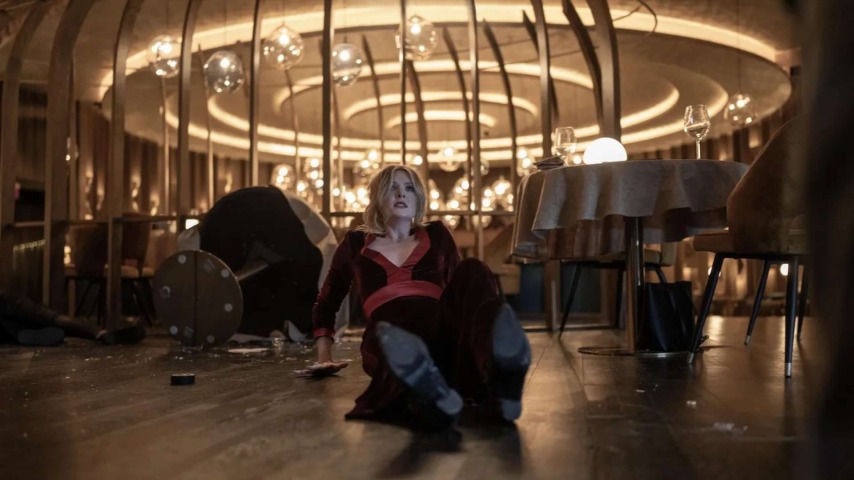Drop's phone-based thrills are a serviceable use of screen time
In the small-scale and over-stylized film, Meghann Fahy stars as a widow who couldn't put her phone down even if she wanted to.
Photo: Universal Pictures
In Drop, public phone use isn’t just rude—it’s deadly. Directed by Christopher Landon, the filmmaker behind the similarly high-concept slashers Happy Death Day and Freaky, Drop is a smaller-scale Hitchcockian thriller overwhelmed by style. Part of that is baked in. The single-location thriller follows in the tradition of Phone Booth and Red Eye, playing on the restrictions of its phone-focused premise in hopes of turning them into a strength. Drop calls in help from various sources, relying on digital effects, whirlybird cinematography, and broad humor to fill out its runtime. The result is a bit like being in an over-populated group chat—sometimes overwhelming to look at, but every now and then something killer comes through.
In a society hedging toward a self-imposed surveillance state, where every doorbell is a Ring cam and every phone a security terminal, monitoring one’s home from afar has become the norm. That proves to be a problem for The White Lotus‘ Meghann Fahy, who plays Violet, a widowed single mom re-entering the dating scene years after the violent death of her abusive ex. Arriving at the vertigo-inducing circular restaurant atop a Chicago skyscraper, she can’t even enjoy her first date without ensuring her five-year-old makes it to bedtime via her nanny cam feed. The feed tempts her with a view of every room in the house when she should be focusing on her Tinder date, Henry (Brandon Sklenar), an accommodating-to-a-fault photographer. All this extra screentime leaves her open for trolling, and she begins receiving mysterious and increasingly threatening AirDrops (or “digiDrops,” in the film’s parlance) from someone nearby—someone in the restaurant.
 Keep scrolling for more great stories.
Keep scrolling for more great stories.
